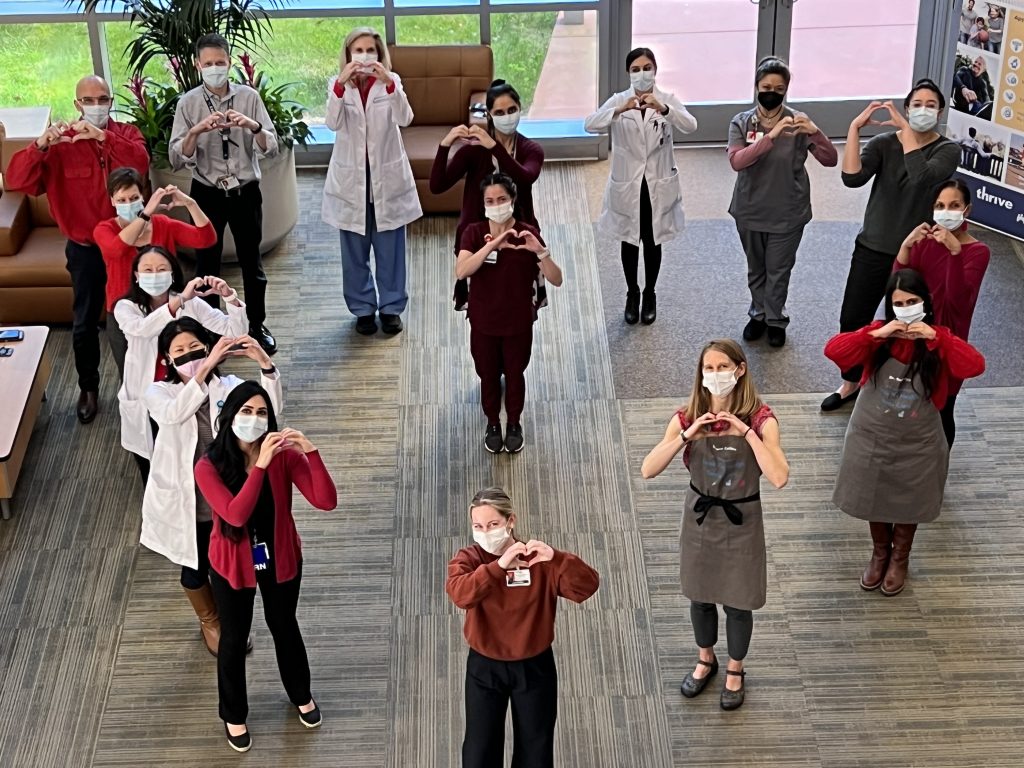In the Kaiser Permanente Santa Clara Medical Center lobby, Physician Allison Collins mixed a bowl of finely chopped kale with a little lemon juice during a recent cooking demonstration.
Collin’s heart-healthy salad was part of a Wellness Wednesday event educating women about heart disease in recognition of American Heart Month.
Heart-healthy recipes, blood pressure screenings and information about women and heart disease were all part of the event.
Heart disease is the leading cause of death for women in the United States and can affect women at any age, according to the Centers for Disease Control. Research shows only 56% of women recognize heart disease as their leading cause of death.
That’s why Kaiser Permanente Santa Clara wanted to educate its members and patients about heart disease prevention.
Collins said what you eat can make a big difference.
“You want to eat the rainbow, a colorful variety of fruits and vegetables,” she said. “Fiber is your friend; I often call it ‘Vitamin F.’ It’ll give you all the nutrients to keep your GI system healthy and if your gut is healthy; it’ll keep your heart healthy.”
She also recommends women cut down on red meat and eat more whole grains, like brown rice.
Kaiser Permanente Santa Clara Family Medicine Physician Richa Goyal, MD, spoke specifically about the increased risk of heart disease among the South Asian population. There is a 40% higher chance of mortality from heart attacks among South Asians than the average population.
“We can use less oils, less saturated fats and make our food more nutritious with herbs and spices,” she said. “South Asians consume a lot of dairy, and we should substitute plant-based milks.”
Kaiser Permanente Santa Clara Cardiologist Seema Pursnani, MD, cautioned that women need to be aware of the more subtle symptoms of having a heart attack. A burning feeling in the abdomen or dizziness and nausea could be an indication of a cardiac issue.
“Women have specific risks for heart disease that they need to know about,” she said. “Women with diabetes or high blood pressure during pregnancy are at higher risk for later development of cardiac disease, leading to heart attack or stroke. Also, women who go through menopause at an earlier age are also at a higher risk of cardiovascular disease later in life.”
